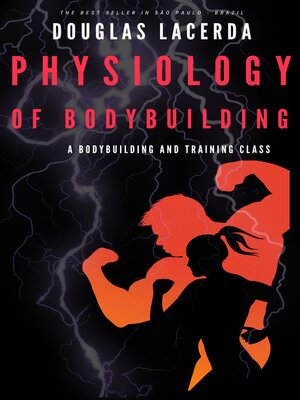
Sign up to save your library
With an OverDrive account, you can save your favorite libraries for at-a-glance information about availability. Find out more about OverDrive accounts.
Find this title in Libby, the library reading app by OverDrive.



Search for a digital library with this title
Title found at these libraries:
| Loading... |
Bodybuilding physiology is the study of the processes that occur in the human body during exercise with weights, aiming to understand the mechanisms involved in muscular adaptation, improving strength, resistance and hypertrophy. In this book, you will find an introduction to the main topics related to bodybuilding physiology, such as:
- Bodybuilding Physiology: Principles and Applications for Strength Training: in this chapter, you will learn the basic concepts about the structure and function of muscle tissue, the types of muscle fibers, contractile proteins, the cross-bridge cycle, coupling excitation-contraction, energy production and consumption, muscle fatigue and factors that influence muscle strength.
- Bodybuilding: Physiological and Methodological Foundations for Exercise Prescription: in this chapter, you will learn about the principles of strength training, such as progressive overload, specificity, individuality, reversibility and periodization. You will also learn how to prescribe bodybuilding exercise according to the variables of volume, intensity, frequency, duration, exercise order, interval between sets and execution speed.
- Physiology of Resistance Exercise: Scientific Bases for Bodybuilding: in this chapter, you will understand how resistance exercise affects the cardiovascular, respiratory, endocrine and immune systems. You will also see how resistance exercise modulates the body's acute and chronic responses, such as cardiac output, blood pressure, oxygen consumption, respiratory rate, hormone release and immune cell activity.
- Bodybuilding: Physiological, Biochemical and Molecular Aspects of Strength Training: in this chapter, you will deepen your knowledge about the molecular mechanisms that regulate protein synthesis and muscle degradation. You will also see how strength training alters gene expression, enzyme activity, and intracellular signals that mediate muscle adaptation to mechanical stimulus.
- Bodybuilding Physiology: How the Body Responds and Adapts to Exercise with Weights: in this chapter, you will follow the morphological and functional changes that occur in skeletal muscle in response to strength training. You will also understand how strength training induces muscular hypertrophy, increases maximum strength and muscular power, improves aerobic and anaerobic capacity, and prevents injuries.
- Principles of Bodybuilding Physiology: From Biomechanics to Biochemistry: in this chapter, you will integrate the knowledge acquired in previous chapters and apply the principles of biomechanics and biochemistry to strength training. You will also analyze the advantages and disadvantages of different types of resistance exercises, such as isotonic, isometric, isokinetic and plyometric exercises.
- Applied Bodybuilding Physiology: Strategies for Strength Training and Hypertrophy: in this chapter, you will learn how to plan and periodize strength training for different goals and populations. You will also learn about the most effective strategies for optimizing muscle mass and strength gains, such as circuit training, pyramid training, pre-exhaustion training, rest-pause training, drop training, among others.







